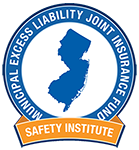MODEL POLICIES
- Accident & Near Miss Investigation Policy
- Artificial Intelligence (AI): Local Government Generative AI Sample Policy
- Automated External Defibrillator (AED) Program
- Carbon Monoxide Residential Incidents
- Chemical Hygiene Program
- Confined Space Entry Program
- Domestic Violence Policy for Public Employers
- Electrical Safety Program
- Emergency Action & Fire Prevention Plan
- Emergency Action & Fire Prevention Plan (Schools)
- Excavation, Trenching, Shoring Safety Program
- Exposure Control Plan Model (Bloodborne Pathogens)
- Fire Department Digital Imagery and Social Media Model Policy
- Fire Department Training & Education
- Fire Department Rehabilitation
- Fire Department Vehicle and Driving Program
- Fitness Room
- Fleet Safety Program
- Hand and Portable Power Tools Safety Program
- Hazard Communication Plan
- Hearing Conservation Program
- Heat Stress Prevention Program
- Hot Work Program
- Indoor Air Quality Program
- Jetting Vacuum Safety Program
- Ladder Safety Program
- Lifeguard Operations – Risk Management Strategies
- Lockout Tagout Program
- Personal Protective Equipment Plan
- Recreation Department Safety Program
- Library Code of Conduct
- Library Emergency Action Plan
- Library Safe Child
- Lightning Awareness Safety Program
- Liability & Waiver Form – Public Facilities/Recreation Programs (COVID-19)
- Respiratory Protection Program
- Road, Sign & Walkway
- Safe Lifting Safety Program
- Sanitation & Recycling Program
- Scissor Lifts & Vertical Mast Elevated Work Platforms
- Silica Exposure Control Plan
- Transitional Duty Policy
- Utility Cart Safety Program
- Violence in the Workplace
- Voluntary Use of Respirators Program
- Work Zone Safety Program
CDL AND NON-CDL MODEL POLICIES
Message From the Safety Director: These model policies have been developed by experts in the field, but it is important to note the following before adapting to meet your municipalities needs:
- All non-italicized print in the Final NJDOT CDL policy is mandatory under federal law. Provisions that are italicized are optional.
- The entire NON-CDL policy is optional. If you decide to adopt a policy of this type, there are many options available to you including the establishment of a “zero tolerance” policy with respect to marijuana (medical or recreational). Please make sure you discuss the options with your municipal attorney and your governing body prior to the adoption of any policy.
- One of the essential elements of the policies is the requirement to name a Designated Employer Representative (DER) and a backup. There are several member JIFs throughout the State that have scheduled training classes for this program, check with your JIF to verify the available dates. It is critical that you send at least the person you intend to designate and another employee that would be available as a backup in case the DER is not available. Vist the MSI Bulletins page for the Bulletin on selecting a DER.
If you have any questions about these model policies, please contact your local JIF Safety Director.
- CDL Model Template Policies for Controlled Substances and Alcohol Use and Testing Policies for New Jersey Public Agencies
- Non-CDL Model Template Policies for Controlled Substances and Alcohol Use and Testing Policies for New Jersey Public Agencies
- Non-CDL Controlled Substances and Alcohol Use and Testing Policies for New Jersey Public Agencies Forms Toolkit
IMPORTANT NOTICE: Read Disclaimer Before Using the Form
The “Consent to Check Motor Vehicle Records” form was prepared to assist our clients as part of their overall safety program. To the best of our knowledge and belief, the form complies with current law and practice at the time of preparation. However, we recommend that all entities and authorities contact their attorney or labor counsel, and have them review the form before issuing the form to any employees to make sure there is no conflict with any local ordinance or collective bargaining agreement.
TRANSITIONAL DUTY
According to a report authored by the American College of Occupational and Environmental Medicine, unnecessary, prolonged work absence can cause significant harm to a worker’s well-being. Workers who are on extended disability often lose social relationships with co-workers, as well as the self-respect and self-esteem that comes from earning a living.
For many workers, their job is part of their identity, and being kept away by illness or injury is a very stressful experience. By allowing a more accelerated return to work and more significant support during recovery, transitional duty programs can help employees reduce the stress and disruption that injuries or illness cause in their daily lives, leading to better recovery.
Transitional Duty programs offer time-limited, modified and meaningful work assignments to employees who, due to an on the job injury or illness, have been rendered temporarily incapable of meeting the physical demands of their usual duties. These assignments are modified to accommodate the physical limitations imposed by injury or illness, as determined by medical professionals involved in the care of the worker.
Resources:


